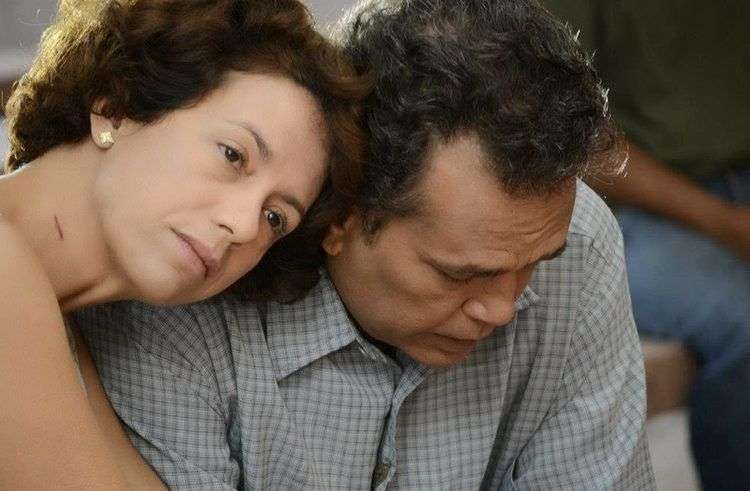Vestido de novia, Marilyn Solaya´s debut film, has just won the Coral Audience Award at the recently concluded International Festival of New Latin American Cinema.
The film joins the multi-prize-winning documentary En el cuerpo equivocado, also made by Solaya, who considered both works as parts of the same film material.
Supported by the formidable performances by Laura de la Uz, Luis Alberto García, Alina Rodriguez, Jorge Perugorría, Mario Guerra and Isabel Santos, the film tells the story of Rosa Elena and Ernesto, who live in Havana in 1994. She is a nursing assistant; and he is head of a construction work very important to the country’s tourism development. Both fall in love, get married and try to be happy until a secret in her life threats that harmony and becomes them victims of violence, prejudice and stereotypes of a society that is still governed by sexist and patriarchal attitudes.
Marilyn Solaya talked to OnCuba about this film that will be seen soon on Cuban cinemas.
Why did you title the film as Norge Espinosa’s poem?
By the same reason the phrase represents, dressing as women because it is synonymous with femininity. Fresa y chocolate was premiered in that same year (1994). We were in the special period, times were really tough. Espinosa’s poem was an anthem for those people and I thought it was important to have him as protagonist in that context that was beginning to have its our own voice . The title Vestido de novia is a great symbol.
What was the most interesting thing you found on the lives of these people reflected in the film?
What caught my attention and that is where I get connected as a filmmaker and as a Cuban woman, is how they, when beginning to live with this new gender, reproduce all the stereotypes and prejudices of the contemporary woman. Gender issues captivate me because I feel they are still unresolved problems in Cuban society, pending subjects despite the Revolution, cultural policy and all satisfactory changes we have experienced.
I think it’s my mission to approach it from my perspective of full, heterosexual woman, single mother of two children, in an Institute of men where only three women, including myself, have been able to make their films. That’s the thematic line of my work.
Why did you choose actresses to play the characters of transsexuals?
Because they are women, physically and mentally, and they assumed themselves as such. They are women although having born in the body of a man, wrongly. When I chose that title for my documentary, which I can not separate from this film, I meant precisely that. They live trapped in a body that is not the one they assume as theirs, and so they born wanting to change everything. Once they begin to live as women, then they are, so they have to be performed by females because otherwise what are we talking about? It seemed fair to me because I’m telling women’s stories, because in fact they are.
In the film, where does fiction begin and documentary end?
The film is inspired by real events that do not belong only to the life of Mavi, first operated in Cuba of gender reassignment, but to all. I took a true story, a human tragedy experienced by these people, everything they suffer, not only them but their spouses and family, all around them; that really caught my attention.
What do you think was the biggest challenge taken during this work?
To demonstrate first to the institution that I could take on the project, that they trust on me and could understand the complexity of the issue and the need to approach it, because we do not live in a bubble , isolated, as it is a universal theme and is in all parts. My film also takes the issue of violence , the issue of inequality, ignorance about what gender relations and stereotypes are. Gender is a social construction; all what is attributed to each gender is an invention. In the film I propose a different, more sensitive man. I work with masculinities, Julio César González Pagés is my advisor, we also love to approach it from the perspective of men, gender is not only being a woman, is also being man and to the extent that men to achieve changing that so closed form of seeing life, we will live with more harmony and fulfillment.









